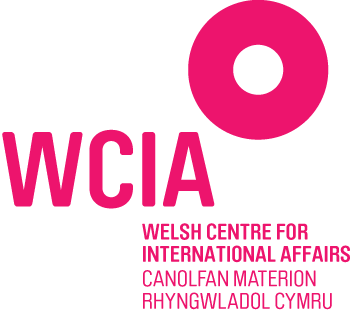
In today’s digital age, more people than ever are joining social media, becoming exposed to a plethora of news and information, and connecting with people and ideas all over the world. However, this isn’t limited to adults, as those ‘joining’ the internet are seemingly getting younger and younger. But is this necessarily a bad thing? Some social media platforms are becoming even less regulated. Because digital literacy is largely missing from global curriculums, the opportunities for seeing harmful and inappropriate content have skyrocketed and consequences of this exposure are becoming more severe. This is what the Australian government wants to prevent: young people being exposed to content that is unsuitable for their age.
On the 29th November, both houses of Australia’s parliament, the House of Representatives and the Senate, passed the Online Safety Amendment Bill, amending the social media minimum age, banning under-16s from social media. Importantly, they have agreed that if the tech companies do not comply, they could face fines of up to AU$50m (c. £25.7m). The legislation won’t come into force for another year, but that hasn’t stopped it from causing a lot of debate around the world.
One of the biggest advocates for the bill is the ‘36 months’ initiative. They have been pushing for the minimum age for social media usage to be increased to 16 and have received over 125,000 signatures on their petition. The initiative emphasises the psychological consequences of social media including addiction and the process of “rewiring young brains within a critical window of psychological development, causing an epidemic of mental illness”. They also acknowledge the economic drive behind social media and why this might be stunting any action taken by tech giants and governments. For example in 2022 in the United States, social media platforms earned almost $11 billion in advertising revenue from under 18-year-olds, making young people an invaluable resource to them.
Furthermore, the rise of ‘fake news’ and the influence it could have on young people’s ideas is also causing concern around the world and is an issue that the ban could help tackle. This goes hand in hand with the power of social media algorithms, the technology that watches our behaviour, analysing who and what we interact with online. Algorithms are more likely to favour controversial posts because more people interact with them, and a big proportion of these posts relate to political discourse. This can be problematic when social media platforms do not remove the content that is proven to be ‘fake’. Consequently, this creates a negative online environment driven by provocative content, encouraging uncertainty, speculation, and hostility which has the potential to reach billions of people.
On the other hand, banning social media for under-16s has the potential to isolate those who rely on the internet for social interactions or those who connect with family and friends around the world. Similarly, it could limit young people’s ability to access help or services in times of crisis, potentially exacerbating the consequences of the issues they are already faced with.

The Australian Human Rights Commission has also indicated that the ban could infringe human rights, notably the ‘freedom of expression and access to information’, ‘the right to education and development’, and ‘the right to culture, leisure, and play’. They also acknowledge that “a blanket ban will not be effective”, explaining that the use of VPNs or inputting an incorrect age, will allow individuals to bypass the law. If it is required to upload identification to prove a user’s age, the question of privacy comes into play.
To gain a more personal insight into the new legislation, I asked four young Australians and their parents what they think about the ban and how it might impact them and others on a daily basis:
Sophie, age 13:
“I think it’s a rushed and unplanned idea [seeing] as it was decided so suddenly and as far as I know, there was no input from the people who will be affected. I use social media every day to communicate with friends and as a source of entertainment. I’m pretty annoyed at the ban because it [will] cut me off from most of my friends. I think it is unreasonable and a total ban is extreme, but something probably should be done to up the age restrictions.”
Sam, age 16:
“Although social media has its downsides, it also has massive positive elements that help me in day-to-day life. I love social media; it allows me to talk to my friends and see what people across the world are doing. If social media had been banned before I turned 16, I would have been sad and disappointed that others had ruined something that I enjoy using so much. I don’t often post on social media, but I enjoy having an insight into people’s lives and many of my opinions are based on what I see on social media.”
Luke, age 19:
“[The ban] is definitely something I would have liked, especially if it was implemented before I started using [social media]. However, if it were implemented whilst I was using it, I would likely be against it because I would feel like I was missing out. I would also probably not understand what would actually be getting banned, as even right now, I don’t understand and neither do the politicians. Social media plays a big role socially and professionally and I would probably try to find a way around [the ban] as it seems like it will be poorly implemented.”
Ellie, age 20:
“With the power of hindsight, I think the social media ban is going to be really beneficial if it is enforced correctly. Growing up and having the pressures and expectations that [social media] imposes definitely changes how you look and act, especially in Australian high schools. It is the norm to have a social media platform, but it can be very damaging and cause so many issues, especially when going through your most foundational years.”
Jayne, parent:
“I think [the ban] will have an overall positive impact and at the very least it will help to raise awareness of the negative aspects of social media such as bullying, addictiveness, and ‘buy now’ culture. However, I can’t see how the ban will be enforced especially when kids find a way around it. The general consensus [amongst parents] is that social media platforms need to take more responsibility for the content shared on social media by, for example, making it easier to report inappropriate content. Instead of an outright ban, it might be better to put regulations in place to educate users on the ‘healthy’ use of social media and educate parents on ensuring kids’ devices are monitored.”
David, parent:
“I think it will be a positive change for kids that have not yet been exposed to social media. For those already reliant, it will take a few years to reap any benefit. I also believe that a large proportion of adults have no idea how much social media is in their kids’ lives.”
It is clear that the social media ban is an incredibly contentious issue, with those being most affected or close to being affected feeling the greatest sense of injustice. However, until the government disclose how they will implement the ban and which platforms will be regulated, it is going to continue to cause a lot of discussion.
In a speech to parliament, Australian Prime Minister Anthony Albanese declared that leaders around the world are “looking at what we are doing and applauding”. And although a similar action is yet to be taken in Wales or the United Kingdom more widely, the Secretary of State for Science, Innovation, and Technology, Peter Kyle, says a possible ban is still “on the table”. In the meantime, a Private Members’ Bill, the Protection of Children (Digital Safety and Data Protection) Bill, has been presented to Parliament. This wants to protect children’s access to digital services and content, but it is not yet clear what form it may take.
Written by WCIA Volunteer Emma Lee
Further Resources:
App Guides – Hwb Cymru
https://hwb.gov.wales/keeping-safe-online/in-the-know
Challenging Fake News – Sutori Interactive
https://www.sutori.com/en/story/challenging-fake-news–3uwdF3nfdyo5rFDxcpNAVSLq
How have social media algorithms changed the way we interact? – BBC News


it’s not fair for it to be done that was cause lot of people makes use of it for business and try to make a living, well….. I’m so glad that Xiaospy1 made it possible to access my ban account successful that seems impossible. I found his platform on “tiktok” and he helped me on recovery perfectly.